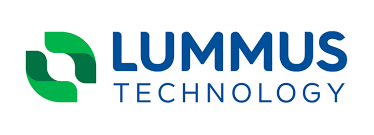
Lummus is one of the world’s leading technology and engineering companies, known for its groundbreaking contributions to the energy, petrochemical, refining, and renewable industries. With over a century of innovation, Lummus has been instrumental in developing advanced process technologies that transform raw materials—such as crude oil, natural gas, and biomass—into valuable fuels, plastics, and chemicals. Today, the company stands at the forefront of the global energy transition, combining deep industrial expertise with sustainability-driven solutions.
This article explores the history, operations, technologies, and future direction of Lummus Technology, highlighting its impact on industries and its evolving role in shaping a cleaner, more efficient world.
Origins and Historical Background
The story of Lummus began in the early 20th century. Founded in 1907 as The Lummus Company, it initially focused on providing engineering and construction services for industrial projects. Over time, it expanded into process technologies that improved the efficiency and productivity of refineries and chemical plants.
Throughout the decades, Lummus became a recognized name in hydrocarbon processing technology, providing solutions that enabled companies to produce essential materials—from fuels and lubricants to plastics and synthetic fibers.
The company has undergone various ownership changes over its history. It was once part of McDermott International, serving as its technology division. In 2020, after a strategic reorganization, Lummus Technology became an independent company backed by The Chatterjee Group (TCG) and Rhône Capital. This independence allowed Lummus to focus more intensely on innovation, digital transformation, and sustainability initiatives.
Today, Lummus operates globally, with a presence in over 70 countries and a portfolio of more than 130 licensed technologies serving thousands of plants worldwide.
Core Areas of Expertise
Lummus operates across several key sectors within the energy and chemical value chain, offering proprietary technologies, engineering services, and equipment.
1. Petrochemicals
Lummus is one of the world’s most experienced providers of petrochemical process technologies. It offers end-to-end solutions for producing ethylene, propylene, butadiene, styrene, and other key building blocks used in plastics, synthetic rubbers, and resins.
Its OLEFLEX™ and ETHYLENE technologies are among the most widely adopted globally. For example, OLEFLEX™ enables the on-purpose production of propylene and isobutylene from light paraffin feedstocks with high efficiency and low emissions. These products are critical for manufacturing everyday materials like packaging, automotive components, and textiles.
2. Refining and Gas Processing
In refining, Lummus provides process technologies that maximize the yield and value of crude oil and natural gas. Its hydroprocessing, resid upgrading, and fluid catalytic cracking (FCC) technologies help refineries produce cleaner fuels and high-quality petrochemical feedstocks.
The Lummus FCC technology—one of the most advanced in the world—converts heavy hydrocarbons into lighter, more valuable products such as gasoline, diesel, and olefins. It has been installed in hundreds of units globally, offering flexibility, reliability, and improved energy efficiency.
3. Clean Energy and Sustainability
As the global energy landscape shifts toward decarbonization, Lummus has expanded its portfolio to include renewable and circular economy solutions. The company’s sustainability strategy focuses on three key areas:
-
Carbon capture and utilization (CCU)
-
Green hydrogen and biofuels production
-
Plastic recycling and waste-to-chemicals conversion
Lummus’ Green Circle™ brand represents its commitment to sustainable technologies. Under this initiative, the company develops processes that reduce carbon footprints, recycle plastics, and produce renewable chemicals from biomass and waste.
4. Polymer Production Technologies
Lummus provides licensing and equipment for the production of polyolefins (such as polyethylene and polypropylene), which are essential materials in the plastics industry. Its proprietary reactor systems and catalyst technologies enable manufacturers to produce high-performance polymers with tailored properties for packaging, construction, and automotive applications.
Technological Innovation and Research
Innovation is the backbone of Lummus’ success. The company invests heavily in research and development (R&D), maintaining dedicated technology centers in the United States, the Netherlands, India, and China.
Through partnerships with universities, research institutions, and industrial clients, Lummus continuously develops new process improvements and environmentally responsible solutions.
1. Digital Transformation
Lummus is embracing digitalization to enhance the performance of industrial assets. Its Lummus Digital™ platform integrates artificial intelligence (AI), predictive analytics, and real-time data monitoring to optimize plant operations. By leveraging digital twins and cloud-based tools, clients can increase energy efficiency, minimize downtime, and reduce operational costs.
2. Advanced Catalysts and Materials
Catalysts are essential for accelerating chemical reactions in industrial processes. Lummus collaborates with partners to develop next-generation catalysts that increase yield and selectivity while minimizing byproducts and energy consumption.
For instance, its CATOFIN® technology, used for dehydrogenation processes, utilizes proprietary catalysts that enable lower energy usage and longer catalyst lifespans, making it one of the most energy-efficient options available.
3. Carbon and Emission Reduction
In response to growing environmental concerns, Lummus is designing systems that capture, store, and reuse carbon dioxide generated during production. These initiatives align with global efforts to achieve net-zero emissions in industrial sectors by 2050.
Global Presence and Partnerships
Lummus operates on a truly global scale, serving customers across North America, Europe, the Middle East, Asia, and Africa. Its extensive network of offices and technology centers allows it to provide local support, engineering expertise, and technical training to clients.
The company has long-standing partnerships with major energy and chemical producers, including ExxonMobil, Shell, SABIC, BASF, Sinopec, and Reliance Industries. These collaborations enable Lummus to continuously refine its technologies and deliver large-scale, efficient, and safe industrial solutions.
Moreover, Lummus often forms strategic joint ventures to enhance its reach. For example, it has collaborated with Chematur Engineering, CB&I, and other partners to develop specialized technologies and expand its licensing portfolio.
Commitment to Sustainability
Lummus recognizes that the future of energy must be sustainable, circular, and low-carbon. Its Green Circle™ initiative embodies this vision by integrating environmental responsibility into every aspect of its operations.
Key sustainability efforts include:
-
Plastic Recycling: Technologies that convert waste plastics into virgin-like monomers, closing the loop on polymer production.
-
Bio-based Feedstocks: Processes that use renewable materials such as biomass, agricultural residues, and waste oils to produce biofuels and green chemicals.
-
Hydrogen Economy: Development of low-carbon hydrogen technologies for use in refining, power generation, and transportation.
-
Carbon Capture: Systems that capture CO₂ emissions from industrial processes and repurpose them into useful products.
By advancing these technologies, Lummus supports the global transition toward a circular economy—where materials are reused, waste is minimized, and emissions are drastically reduced.
Impact and Recognition
Over more than a century, Lummus has licensed thousands of process units and technologies worldwide. Its solutions have contributed to the development of cleaner fuels, safer operations, and more efficient chemical production.
The company has received numerous awards for technological innovation and sustainability leadership. It is recognized as a trusted technology partner by major industrial players and continues to be a driving force behind many of the world’s most advanced energy and chemical facilities.
The Future of Lummus
The next chapter in Lummus’ story is centered on energy transition and decarbonization. The company is investing in emerging technologies such as:
-
Renewable hydrogen production through electrolysis
-
Circular plastics and advanced recycling
-
Low-carbon synthetic fuels
-
Integration of digital and AI tools for process optimization
With the global demand for sustainable energy solutions rising, Lummus aims to balance economic growth with environmental responsibility. Its strategy is clear: to lead the transformation of traditional industries into sustainable, low-carbon operations while maintaining high efficiency and profitability.
Conclusion
Lummus stands as a global leader in technology innovation for the energy and chemical industries. From its roots in refining and petrochemicals to its pioneering efforts in renewable energy and carbon reduction, the company has consistently pushed the boundaries of what is possible.
In an era where the world is striving for cleaner, smarter, and more sustainable industrial solutions, Lummus continues to deliver technologies that not only power economies but also protect the planet.

